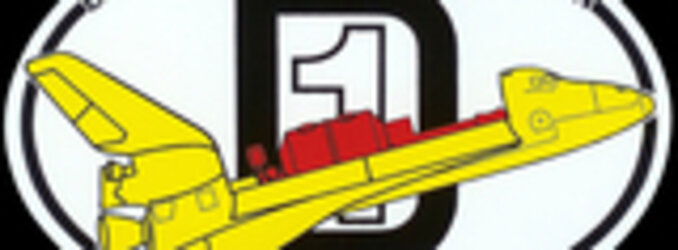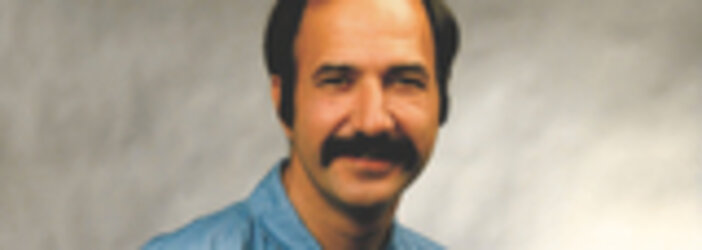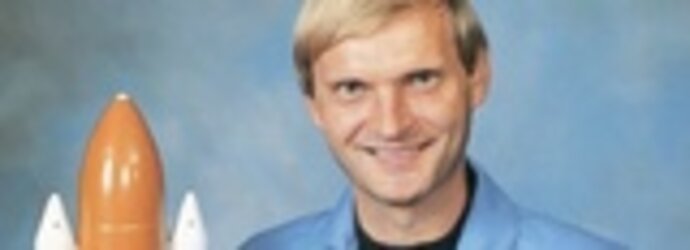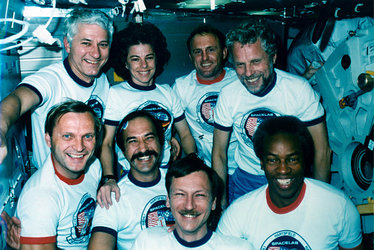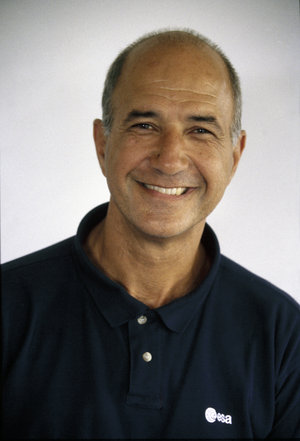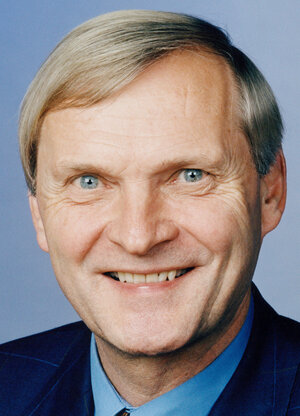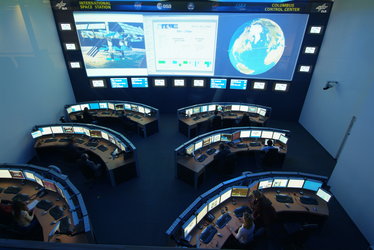Wubbo Ockels: STS-61A Payload Specialist
ESA astronaut Wubbo Ockels became the first Dutch citizen in space as a Payload Specialist on flight STS-61A of the Space Shuttle Challenger from 30 October to 6 November 1985, on the German Spacelab D1 mission.

Born 28 March 1946, in Almelo, the Netherlands, Ockels gained a degree in physics and mathematics from the University of Groningen in 1973, and completed his PhD in nuclear physics in 1978.
In 1978, he was selected by ESA as one of three European payload specialists (science astronauts) to train for the Spacelab missions, together with Ulf Merbold and Claude Nicollier.
During the first Spacelab mission, he served as ground-communicator and liaison-scientist for the crew on board STS-9.
From 1986, he was based at ESTEC, in Noordwijk, the Netherlands, where he supported human spaceflight activities and later became Head of ESA's Education and Outreach Office. During this time he also held a part-time professorship in Aerospace at the Delft University of Technology (TU Delft).
In 2003 he became full-time professor of Aerospace for Sustainable Engineering and Technology at TU Delft, dealing with the exploitation of alternative sources of energy.
The feeling of gravity on my return was a big influence on my thinking, about life, about the Earth, about our dependence on the Earth, about how we see the Cosmos.
ESA: How do you feel about the Spacelab D1 mission now, looking back after 25 years?
Ockels
To me it was a big step. A total awareness of the world, Earth and of the role of gravity in us, in life. This feeling was very strong. Then when I came back I worked on another mission, some other projects, then I started on the Education programme, and I still think very nicely back to that, to the joy that I could create in younger people, for them to take part in parabolic flight campaigns and for them to build satellites. Those kind of projects were really very nice, and all basically a spin-off from my spaceflight.

ESA: Did your flight into space change you personally?
Ockels
Yes it changed me personally but it also changed the opportunities you get. It’s a fact that you become a well-known person in your country, and that’s unavoidable and I see it as a responsibility. It’s a responsibility to use that for a good mission, and my mission is sustainability and innovation and youth. I’m very happy to have this opportunity.
ESA: How did you become an astronaut?
Ockels
In my case it was also driven by opportunity, I was finishing off my PhD in Physics at Groningen. In the laboratory where I worked, in the hall on the notice board one day appeared a notice in Dutch, an opportunity to be a scientific astronaut. Some colleagues of mine had put some jokes on it, but when I saw it I thought, well wait minute, this could be serious and so I wrote for extra information. I remember when I got the information, I thought, “This is my job.” It was just so perfect that it was exactly what I wanted to do so I applied.
ESA: You’d never thought about being an astronaut before, but did you have anyone who inspired you to be a scientist?
Ockels
No, not even that. I saw men landing on the Moon and thought it was cool but I never associated that at all with myself.

ESA: What things do you remember most about the mission?
Ockels
The launch itself was very memorable. Sitting there when finally the rocket engines were ignited, we went like “Wow, yeah! What’s happening!” Then the second very strong memory I have is 15 minutes later of floating for the first time to the window and saw the Earth, and from that overwhelming perspective, it was like “Wait, a minute, I mean can I have all these really, really strong reactions, it was emotional to realise that you’re outside of everything which is alive or that you’ve experienced.
The third moment, which I always remember, is when the mission was over and they closed the cargo doors of the Space Shuttle. In the cockpit of the Space Shuttle there are two rear windows and two overhead windows, and from those windows you can see the slow closing of the cargo bay doors (which is a critical issue, if you don’t close them, you can’t return). We enjoyed looking at it, and I was thinking about grabbing my camera to take a picture, but then Ernst Messerschmid said, “Oh well, maybe you should not. Because if you don’t, you’ll never forget this moment.” And in fact he was right.
The fourth moment that also happened is similar to the first moment. After rollout, I stood up from my chair and felt the Earth’s gravity as a real acceleration, an elevator going up at an incredible speed. Again that was so overwhelming, that since then it really has been a big influence on my thinking, about life, about the Earth, about our dependence on the Earth, about how we see the Cosmos.
Ernst said maybe you should not take the picture. Because if you don’t, you’ll never forget this moment.
ESA: Spacelab D1 was 25 years ago, but what do think will be the challenges of space exploration in the next 25 years?
Ockels
I think one of the big challenges will be sustainable launches. We cannot afford to launch on rockets that pollute our atmosphere. We need to do something and it’s going to be really an effort because of the actual technical challenges. NASA is looking at launching with solid rockets, which are really ‘dirty’, so you’re going back in the wrong direction.
I think robotics will get more attention. You can do much more with robotics today. You could have a whole Apollo-type mission done robotically with the technology of today. So I think robot exploration in spaceflight is the way to go.





